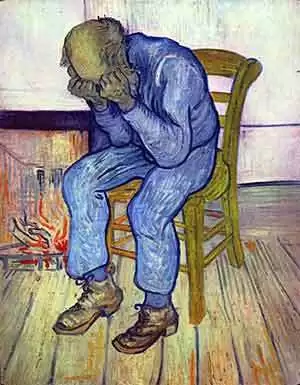
Celiac.com 06/06/2020 - Patients with depression are told they have a chemical imbalance. If someone else in their family is also depressed, the “gene card” is played. “Your depression is genetic”, they are told.
I have been in practice for over 20 years and I find the above data to be false. Consistently we find patients who are suffering from depression and anxiety to be gluten sensitive.
Celiac.com Sponsor (A12):
How could a food cause depression? Let’s take a look:
After the digestive tract, the system most commonly affected by gluten is the nervous system. It is thought that depression can be caused by gluten in one of two ways, inflammation and protein absorption.
The first is through the inflammatory changes caused by gluten. A gluten sensitive individual’s immune system responds to the protein gliadin. Unfortunately, that protein is structurally similar to body proteins, including those of the brain and nerve cells. A cross reaction can occur when the immune system “confuses” body proteins with gliadin proteins. This is called cellular mimicry and the result is inflammation where the body is attacking its own tissues. When inflammation happens in the brain and nervous system, a variety of symptoms can occur, including depression. Research shows that patients with symptoms involving the nervous system suffer from digestive problems only 13% of the time. This is significant because mainstream medicine equates gluten sensitivity almost exclusively with digestive complaints.
In a study examining blood flow in the brain, 15 patients with untreated celiac disease were compared to 15 patients treated with a gluten-free diet for one year. The findings were amazing. In the untreated group, 73% had abnormalities in brain circulation by testing while only 7% in the treated group showed any abnormalities. The patients with the brain circulation problems were frequently suffering from anxiety and depression as well.
In addition to circulation problems, other research looks at the association between gluten sensitivity and its interference with protein absorption. Specifically the amino acid tryptophan can be deficient. Tryptophan is a protein in the brain responsible for a feeling of well-being and relaxation. A deficiency can be correlated to feelings of depression and anxiety.
Our society is too willing to accept “chemical imbalance” as an explanation for their symptoms. Instead of getting to the root cause of the condition, we simply swallow a pill—a pill that in the case of anti-depressants has very dangerous and sometimes lethal side effects.
The frequency with which we are able to successfully taper patients off their anti-depressants is considered “unbelievable” by many mainstream doctors, yet we do it regularly. How is that possible? We actually diagnose the root cause of the depression. Frequently the culprit is gluten.










Recommended Comments
Create an account or sign in to comment
You need to be a member in order to leave a comment
Create an account
Sign up for a new account in our community. It's easy!
Register a new accountSign in
Already have an account? Sign in here.
Sign In Now